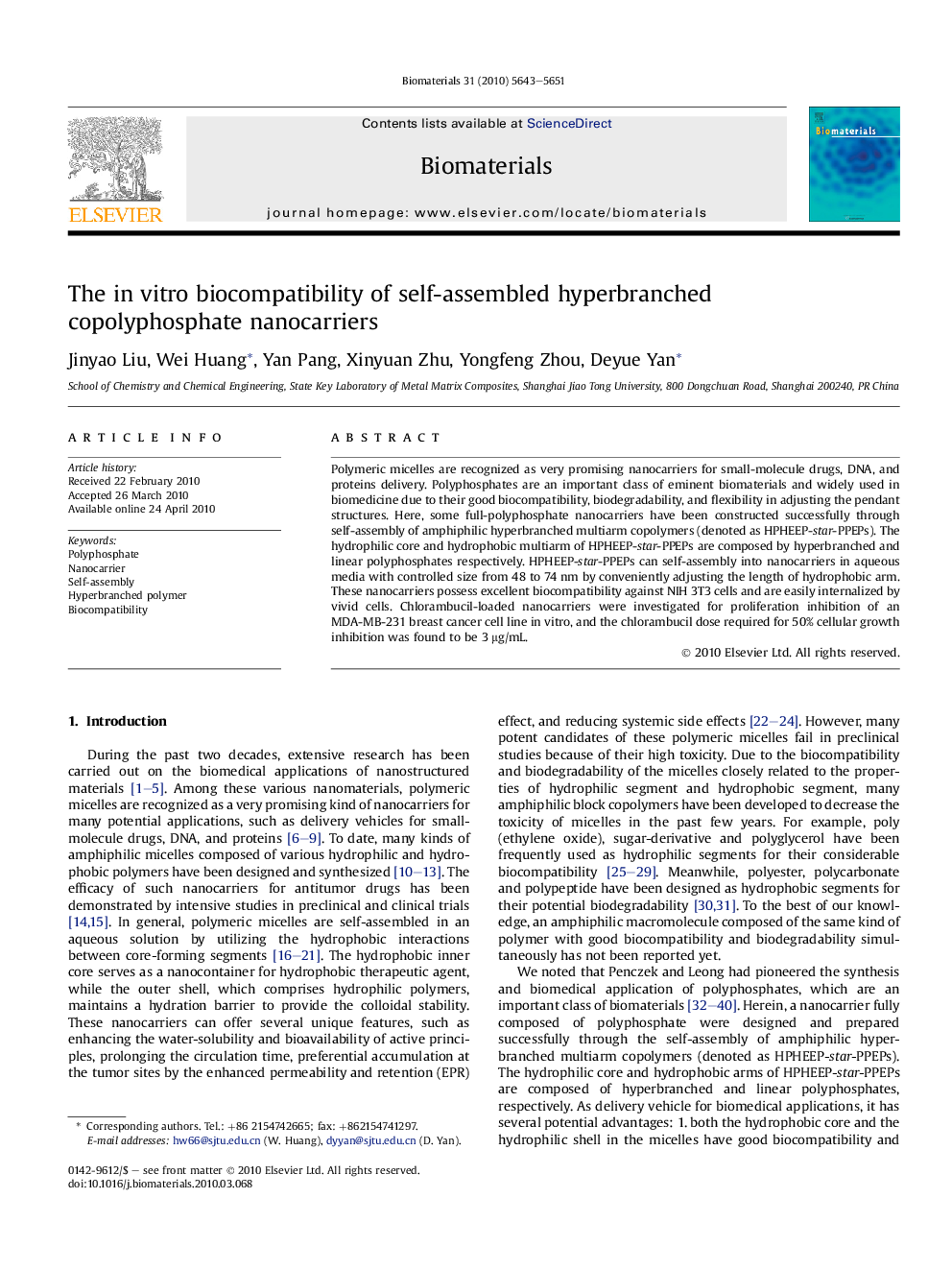| Article ID | Journal | Published Year | Pages | File Type |
|---|---|---|---|---|
| 9510 | Biomaterials | 2010 | 9 Pages |
Polymeric micelles are recognized as very promising nanocarriers for small-molecule drugs, DNA, and proteins delivery. Polyphosphates are an important class of eminent biomaterials and widely used in biomedicine due to their good biocompatibility, biodegradability, and flexibility in adjusting the pendant structures. Here, some full-polyphosphate nanocarriers have been constructed successfully through self-assembly of amphiphilic hyperbranched multiarm copolymers (denoted as HPHEEP-star-PPEPs). The hydrophilic core and hydrophobic multiarm of HPHEEP-star-PPEPs are composed by hyperbranched and linear polyphosphates respectively. HPHEEP-star-PPEPs can self-assembly into nanocarriers in aqueous media with controlled size from 48 to 74 nm by conveniently adjusting the length of hydrophobic arm. These nanocarriers possess excellent biocompatibility against NIH 3T3 cells and are easily internalized by vivid cells. Chlorambucil-loaded nanocarriers were investigated for proliferation inhibition of an MDA-MB-231 breast cancer cell line in vitro, and the chlorambucil dose required for 50% cellular growth inhibition was found to be 3 μg/mL.
